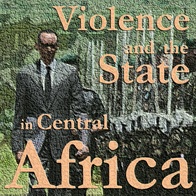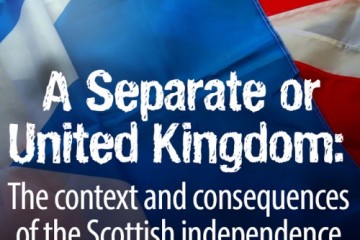
Paying your soldiers and building the state in post-genocide Rwanda
Ensuring soldiers have legal access to financial resources is crucial for the state to fulfil its primary mission: retain the monopoly of violence. As seen in the Democratic Republic of Congo, difficulties providing soldiers with adequate resources may result in deteriorating discipline, corruption, defection, and human rights abuses.
Rwanda after the genocide faced the difficult task of paying its soldiers. The post-1994 situation made this challenge inescapable. The Rwandan Patriotic Front (RPF) took power in a ruined country. The economy was entirely destroyed, and fleeing officials of the previous regime had emptied state coffers. The resources to pay soldiers were virtually non-existent. In addition, following the RPF victory, many families returned from exile to Rwanda. Consequently, soldiers of the Rwandan Patriotic Army (RPA, the armed wing of the RPF) were not just guerrilla fighters anymore: they became fathers, husbands, or brothers again. This new financial burden on soldiers’ shoulders created a form of indiscipline largely unknown until then in the RPA’s ranks. In addition, the meagre salaries were made in cash, transported by intermediaries from the Ministry of Defence to soldiers, which multiplied the opportunities for embezzlement and the creation of ‘ghost soldiers’. Worse, the opportunities for soldiers to borrow money were extremely limited at the time. Many had no property in Rwanda and consequently no collateral to offer to the few banks still functioning.

The British constitutional reform crisis: a proposal
The UK needs a framework for federalisation. Here’s one suggestion for how this could work. The Problem Britain is on the brink of a catastrophe of which the left seems to be frighteningly unconcerned and unaware. If the Conservatives succeed in implementing English-only days at Westminster, it is likely to transform both Scotland and the rest of the UK into what will in effect be neoliberal dictatorships. Scotland will lose the ability to vote down proposals that would lead to steep cuts in its budget via Barnett consequentials if key services are privatised south of the border. English voters who may have voted Conservative or UKIP for ‘protest’ reasons such as concern about immigration or dislike of the EU could …

So what is a people’s constitutional convention?
Over the past couple of weeks, as the referendum campaign reached its climax in Scotland, a concept has suddenly started springing up all over the place in English political debate: the idea of a constitutional convention. (The Welsh National Assembly called for UK-wide constitutional convention in 2012.) In a letter to The Times on September 10, 19 experts on UK democracy set the proposal out as follows: ‘It is time for a UK-wide constitutional convention, on the lines of recent conventions in Ireland and Iceland, that gives citizens a say in shaping the future. Such a process needs the support of all the political parties, but it must retain its independence from them.’ Calls, similar in content or spirit, have come from Nick Pearce of IPPR,Compass, Rebecca Johnson …

And so it continues…: Rwandan refugees and the latest bilateral politicking in the Great Lakes
The year 2002 marked the initiation of discussions concerning the suitability of invoking Article 1C(5) of the 1951 Convention Relating to the Status of Refugees to deal with the protracted Rwandan refugee caseload. This Article permits a declaration by countries and UNHCR that ‘the circumstances in connexion with which he [the refugee] has been recognised as a refugee have ceased to exist’, and therefore ‘he can no longer…continue to refuse to avail himself of the protection of the country of his nationality.’ In short, the ‘ceased circumstances’ Cessation Clause constitutes an international validation of positive change in post-conflict governance and the meaningful re-establishment of the citizen-state bond, as well as providing a legal normative framework for the repatriation of former refugees.
It is easy to see why the GoR so earnestly pushed for the invocation of the Cessation Clause throughout the Noughties. Internal and external legitimacy was waning under the weight of mounting evidence that domestic politics was partisan and exclusionary at best, authoritarian and murderous at worst. The regime wanted to repatriate potential opponents back to within the state’s jurisdiction. Achieving international consensus over the suitability of refugees returning to Rwanda was thus a potential way to refute accusations concerning human rights abuses within the country, and to exercise more control over possible critics. Controversially, the High Commissioner for Refugees announced support for the cancellation of status for all Rwandan refugees by the end of 2011. After seven years of lobbying and contestation, this therefore constituted a major victory for the RPF.

Iain McLean on Scotland, oil revenues, NATO, and the EU
Professor Iain McLean of Nuffield College, Oxford, co-author of Scotland’s Choices, was interviewed by Bloomberg TV about his research which claims that accounting for changes in oil revenues and transfers from the rest of the UK would leave Scots about £480 per person worse off. He also discusses the implications of independence for currency and banking, and Scottish membership of NATO and the EU.

Our series on the Scottish referendum: things to keep in mind for tomorrow
In advance of the vote tomorrow, which will decide the fate of the three-centuries-old voluntary union between Scotland and England, the outcome is far from a foregone conclusion. The Politics in Spires blog series ‘A Separate or United Kingdom’ has attempted to contribute to an expanded discussion of the independence debate with voices from across the social sciences, including law, economics, sociology, psychology, human geography, political philosophy, and more. Much of the popular discussion has centred on the fiscal and economic consequences of separation. Prof Simon Wren-Lewis agrees with the UK Treasury that in the next decade, at least, Scottish people ‘will be significantly better off by staying in the Union’. Wren-Lewis warns that independence would involve high set-up costs which would …

Scotland: whoever wins, the public loses
The result of the referendum on 18 September is very uncertain, but its effects have already been felt. Whichever side wins, and whichever path the Scottish people chooses, the real loser of the long referendum campaign has been the quality of public debate, both in Scotland and south of the border. This is not meant as a trivial slight at any irrationality on the part of Scottish voters, or excessive rambunctiousness in the public demeanour of partisans of ‘Yes Scotland’ or ‘Better Together’. If anything, it is to be applauded that the debate has galvanised such high levels of engagement among the Scottish public, culminating in an expected turnout for the referendum of as much as 80%. Instead, it is more a comment that in the supposed contest between ‘head’ and ‘heart’ reasons for which way to vote, it has generally been the very worst aspects of both that have prevailed over their better, and more useful, fellow-arguments. The debate over Scotland’s future has, especially recently, served up the incongruous (and unromantic) image of a nation of ‘bean-counters’ basing its decision about independence on the expected profitability of either outcome, yet calculating this expectation (on either side) off the back of political and economic assumptions that resemble nothing so much as declarations of blind fear or faith.

City-regional small nations beyond nation-states
With separate histories and political-cultural traditions, the UK and Spain do not have the same nation-state DNA. Yet both face issues over regional independence. While the UK Government has legitimised the Scottish Government and supported the Scottish Independence referendum as a highly democratic exercise, Spain stands out as remaining normatively inflexible without, so far, even contemplating any dialogue with the presidents of the Catalan and Basque Autonomies.
Other EU nation-states accept the UK’s approach to sort out regional and nationalistic claims democratically. But Spain has been avoiding the demands of the Catalan and Basque institutions and citizens on the basis of both historic and more recent episodes of political unrest. As a result, it seems impossible to open any discussion about the devolution claims of city-regional small nations, particularly in terms of devising an internal, alternative and re-scaled configuration of Spain as a nation-state, which would involve modifying the 1978 Constitution. In the case of the Basque Country, this is presented as the least likely outcome as political violence in the region has been both a major obstacle and also a source of inertia. Nevertheless, ETA (Euskadi Ta Askatasuna)[1], announced a ‘definitive cessation’ of its campaign in 2011 and, therefore, should welcome any kind of democratic implementation that involves devolving powers to the Basque Country.
But are there any remarkable differences between EU nation-states such as the UK and Spain?
Indeed, I think there are plenty of them.









